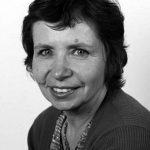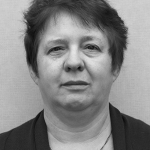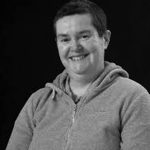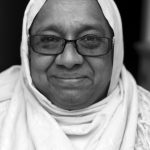The assault on inclusion
Tara Flood rounds up views from across the education sector on some of the current challenges to inclusion
In November ALLFIE and the National Education Union co-hosted an inclusive education workshop at the National Disabled People’s Summit, organised by DPAC, ROFA and the TUC.
We based the discussion on the recent UNCRPD Concluding Observations document and in particular the recommendations for implementation of Article 24: the Right to Inclusive Education.
Because we got such rich information from the workshop participants we decided to include a snapshot of what people said in this edition of Inclusion Now. This is the first of two articles: this article sets out many of the concerns that Disabled people in education and/or working in education have about the implementation of Article 24 and the development of education that is inclusive. In the second article (Summer 2018) we will consider the way forward.
Participants talked about all levels of the education system, but with a particular focus on higher education.

Florence Oulds is a Disabled student at Cambridge University, who set up the CUSU Disabled Students’ Campaign seven years ago. Florence told us:
“As an organiser in Higher Education, I believe that a large issue we’re facing is a lack of allyship from non-disabled staff and students who don’t understand how important their voices and actions are in support of Disability liberation, but also a huge lack of institutional funding. Disabled students don’t feel like they deserve HE, and then when they get here this is confirmed by a lack of support, which often leads to distress and isolation and ultimately Disabled students dropping out and abandoning their studies.”

Nicola Martin, Professor and Head of Research, Higher Degrees and Student Experience at London South Bank University, Education Division told us that the 2014 Children & Families Act has a lot to answer for in the worsening situation for Disabled students in higher education:
“The Children & Families Act 2014 did prospective Disabled university students a disservice by failing to acknowledge higher education as a viable progression route. Further education, employment and apprenticeships were flagged but no mention of university. We must also keep a very close eye on how the changes to DSA [Disabled Students’ Allowance] are impacting on Disabled students and their access to university. We need to work together across education from early years to post school, including Higher Education.”

NADP, the professional association for Disability and inclusivity practitioners in further and higher education, was represented at the workshop by Operations Manager Lynn Wilson. Lynn gave her personal perspective on how and why inclusive education is being held back:
“Firstly management tend to view inclusive education as a money-saving opportunity. If they invest in a one-size-fits-all solution then they do not need to make costly adjustments such as employing SENCOs/Disability Advisers and using individual support workers.
“Secondly ‘inclusivity’ has become the current buzz-word. This means that many people from diverse areas are discussing approaches to inclusivity. Senior management are given guidelines and draft policy documents from equalities officers, widening participation officers and disability advisers. A lot of this information is conflicting and pulling together one concerted policy is complex. The best work is being done when there is a senior management champion to oversee and force through the changes needed. Many universities, for example, are leaving the forcing through to a disability manager who is not high enough on the food chain to have much effect.
“Thirdly the role of the SENCO or Disability Adviser needs to change. They will, of course, be needed for advising on complex disability issues but they also need retraining in order to support the development of an inclusive practice and advise other staff members on how to build an inclusive curriculum and assessment process.”

The summit was held at the National Education Union’s office in London, and Mandy Hudson who represents Disabled teachers on the union’s national executive shared her thoughts:
“I think teachers do want to include all pupils but feel overwhelmed and stressed by a heavy workload, an ever changing curriculum and punitive inspection system. We know that including all pupils doesn’t equate to a problem. The problem comes due to schools not having the resources to provide a high quality education. With the right attitude, schools can include all pupils but unfortunately, the current political situation means that more segregation is taking place.
“We do need an investment in disability equality training within initial teacher training (ITT). However, with the increasing fragmentation of ITT into school level training, without a change of approach such training will not happen.”

Roddy Slorach, Senior Disability Advisor at Imperial College London and author of “A Very Capitalist Condition – A History and Politics of Disability”, was at the workshop and talked about the neoliberal ideology driving the attack on inclusive education.
“Successive governments have undermined the principle of education as a right for everyone and turned it into a privilege for those who can afford it. The government argues that universities need to make teaching and learning accessible to all, and shoulder the cost of reasonable adjustments for disabled students. It’s true that the more accessible teaching and learning is, the less reasonable adjustments are needed. But the most successful universities – who can charge the highest fees – are most likely to become more inclusive, while universities with less profit to invest in redesigning courses and curricula risk losing students as well as government funding. Take one example. Some of the wealthiest universities now video record most lectures, posting recordings on the electronic learning environment immediately afterwards so students can use them as a revision tool. Every student gains from the increased accessibility, although those with specific learning difficulties are the most obvious beneficiaries.”

Lastly Sarifa Patel, a Disabled person and parent of a Disabled young person, sums up the broader intersectional barriers that many parents face. Sarifa is also the Vice Chair of ALLFIE.
“I work with parents of Disabled children and young people, many from the BAMER community. It does feel like things are going backwards and we need to campaign to make sure it is at the top of the agenda for all the political parties. Parents and our children and young people are having their basic human rights denied and racism and disablism is forcing our children and young people out of mainstream education and away from our communities. This is having a massive detrimental effect on the learning and well-being of our children. We need to hold the government to account.”
This is just a snapshot. Workshop participants also talked about the growth and speed of academisation, the narrowing of the curriculum, inflexibility of testing and assessment and the worrying rise in the numbers of Disabled pupils being excluded from school or shifted into segregated education and alternative provision.
The second article in this series will take into account much of what people have told us of the current barriers to inclusive education, and will begin to map out what changes to law, policy and practice a transitional framework should include.
Tara Flood
![Allfie [logo]](https://www.allfie.org.uk/wp-content/themes/allfie-base-theme/assets/img/allfie-logo-original.svg)



